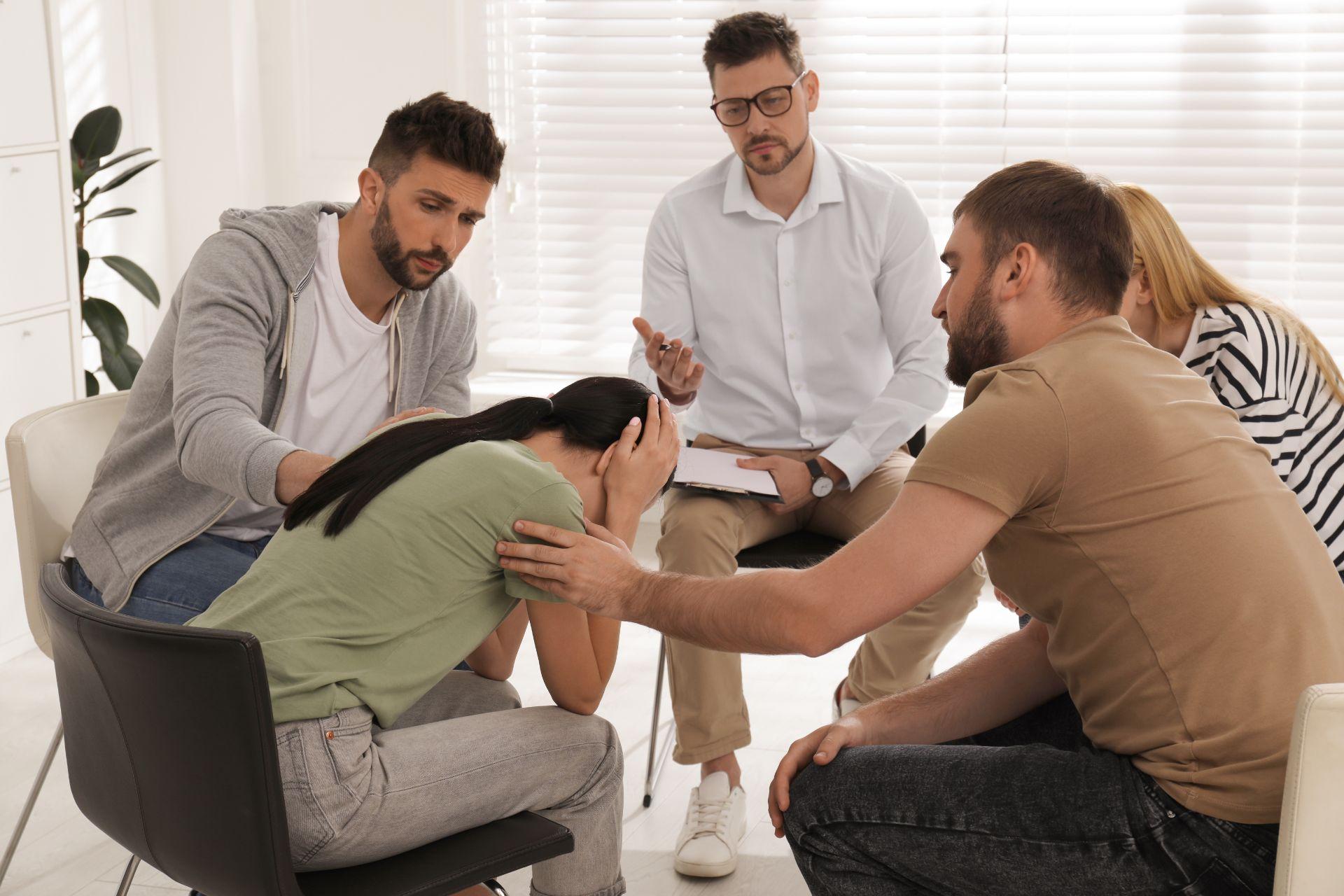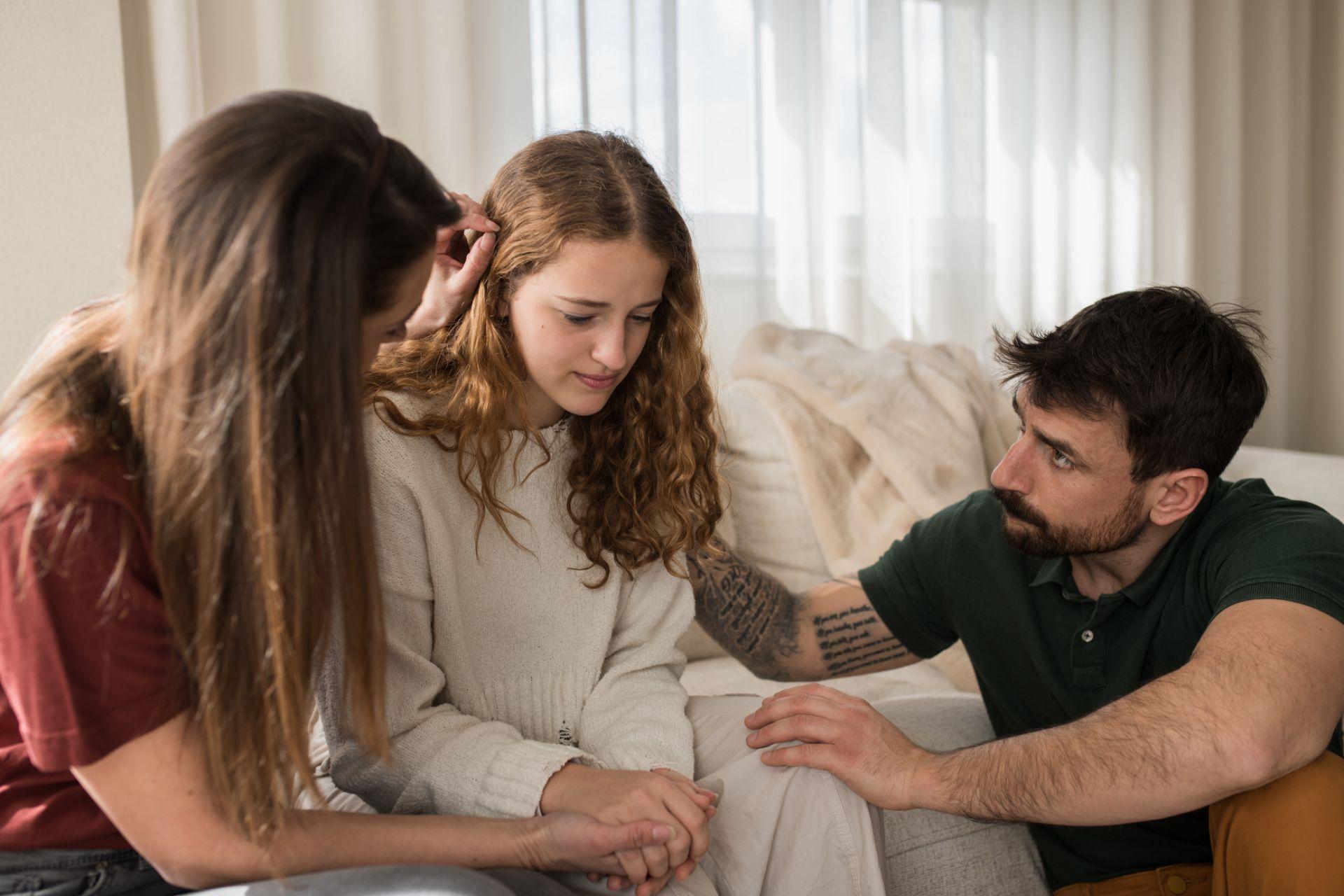When a person is in the grip of drug or alcohol addiction, the impacts of their substance abuse can spread to every area of their life. Addiction not only hurts the person with the substance use disorder, but also their family members and friends.

Recognizing the Signs of Addiction
Knowing how to help a friend or family member who is suffering from addiction isn’t always easy. Their behavior can be confusing and contradictory. At times they may seem to be getting better or even doing well. Other days they may seem close to rock bottom.
Possible signs your loved one has a substance use disorder include:
- Problems at work or school
- Slurred speech, bloodshot eyes, or skin changes (such as acne-like bumps or skin lesions)
- Changes in punctuality, dependability, or trustworthiness
- Physical changes, such as weight gain or loss, lack of grooming, or disheveled appearance
- Money issues (including requests for money without a reasonable explanation)
- Legal troubles
When It’s Time for an Intervention
If you’ve pleaded with your loved one to get addiction treatment without success, it may be time for a family intervention. A group intervention can be lifesaving for someone struggling with a substance use disorder. Every day that goes by your loved one is at greater risk of complications from substance use.
It’s important to know what to expect during the intervention process and how to respond if your loved one resists addiction treatment. An intervention specialist can guide you on the most effective ways to urge your loved one to get help.
If you decide not to seek intervention services or work with a trained interventionist, it’s important to educate yourself and everyone involved before staging an intervention. You need to know how to approach a loved one who is in the grip of drug or alcohol addiction.


How to Stage an Intervention
A successful intervention program requires good planning. A poorly executed intervention can make the situation worse. Your loved one may end up feeling attacked and become even more resistant to treatment. These steps below can help.
1. Make a plan.
The first step is to decide when, where, and how you want to approach your loved one. If possible, consult with an intervention counselor for tips and guidance.
2. Form the intervention team.
Your intervention team includes those who will physically participate in the intervention. Group interventions tend to be more effective than one-on-one interventions. Aim for a group of 4-6 people with a mix of close family members and friends.
Nonfamily members can help keep the discussion on track. It’s important to stay focused on the issue at hand: your loved one’s drug abuse, not other longstanding family issues.
3. Find a treatment center.
This is a critical step. To give your intervention the best chances of success, you should make arrangements with a treatment center beforehand. If cost is a concern, find a treatment center that accepts your loved one’s insurance, or arrange for a payment plan. Don’t give your loved one any reason to back out.
4. Plan what you’ll say.
Each member of the intervention team should think about specific incidents where their loved one’s struggle with addiction has strained their relationship or caused problems. Everyone should be able to respectfully express the toll of their loved one’s behavior.
Be careful with your language. Talk about how the person’s drug addiction has affected you without attacking their character. For example, instead of saying, “You are an inconsiderate person,” say “I felt hurt when you…”
5. Decide on consequences.
Everyone in the group should decide how their relationship must change if their loved one doesn’t accept treatment.
For example, a parent may ask their son or daughter to move out of the house. A friend may limit activity with the person. Don’t threaten a consequence if you are not ready to follow through with it.
6. Practice.
The group should meet to rehearse before the face-to-face intervention. Everyone should practice their message and plan for how the group will respond if their loved one is not receptive to accepting treatment.
7. Hold the intervention.
Designate someone in the group to ask your loved one to meet at the intervention site without revealing the specific reason. Once your loved one understands the reason for the meeting, members of the group should take turns expressing their concerns and feelings.
Designate someone in the group to present your loved one with the treatment option. If your loved one accepts treatment, arrange for them to go to the recovery center as soon as possible—that night or the next morning, if possible.
Someone should already have made arrangements with the addiction treatment center to ensure they have space and are ready to receive your loved one.
Get Help Today
If you’ve pleaded with your loved one to get addiction treatment without success, it may be time for a family intervention. A group intervention can be lifesaving for someone struggling with a substance use disorder. Every day that goes by your loved one is at greater risk of complications from substance use.
It’s important to know what to expect during the intervention process and how to respond if your loved one resists addiction treatment. An intervention specialist can guide you on the most effective ways to urge your loved one to get help.
If you decide not to seek intervention services or work with a trained interventionist, it’s important to educate yourself and everyone involved before staging an intervention. You need to know how to approach a loved one who is in the grip of drug or alcohol addiction.

Ready to take the first step?
Del Arroyo Recovery Center is ready to help you take that vital first step toward long-term recovery.
Contact us today to learn more about our treatment programs and for a tour of our residential rehab in Agoura Hills. Our six-bed residential treatment center features luxury amenities in a home-like atmosphere where you can focus on healing. Sign up for our drug and alcohol rehab today.
